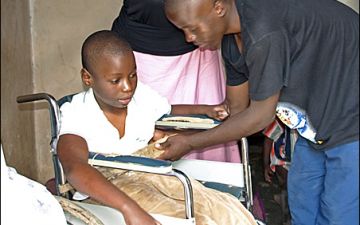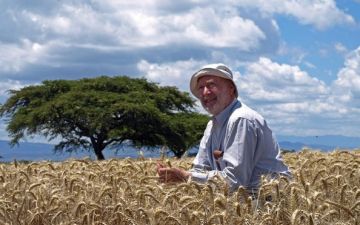December 2011 update by Fred de Sam Lazaro for PBS NewsHour
A new and virulent fungal disease is threatening a major food security crisis by attacking the world's second largest crop, wheat. After the stem rust disease was discovered in Uganda in 1999 (Ug99), its spores took to the wind, hit fields in Kenya and Ethiopia, jumped the Red Sea to Yemen and turned up this year in Iran.
Eighty percent of Asian and African wheat varieties are susceptible to it. In March, the FAO warned Afghanistan, India, Pakistan, Turkmenistan, Uzbekistan and Kazakhstan to be on high alert for the disease. In India alone, more than 50 million small-scale farmers are at risk because they rely on wheat for their food and income. Stem rust epidemics have caused major famines over the centuries.
The Romans bid to save their crops by offering sacrifices every spring to the rust god, Robigus. In modern times, stem rust decimated crops at the dawn of the 20th Century and again in the 1950s. Scientists fought it back at last by developing resistant wheat varieties that filled breadbaskets worldwide. Now, the persistent disease has shattered that barrier. And the crisis has prompted plant geneticists to comb the world for new resistant strains in wheat and its close relatives.
Sharon Schmickle's project on UG99 includes field reporting in 2008 from east Africa and from test labs in Minnesota. In fall 2011 the Pulitzer Center partnered with PBS NewsHour for a follow-up report by special correspondent Fred de Sam Lazaro, director of the Project for Under-Told Stories at Saint Mary's University of Minnesota.



